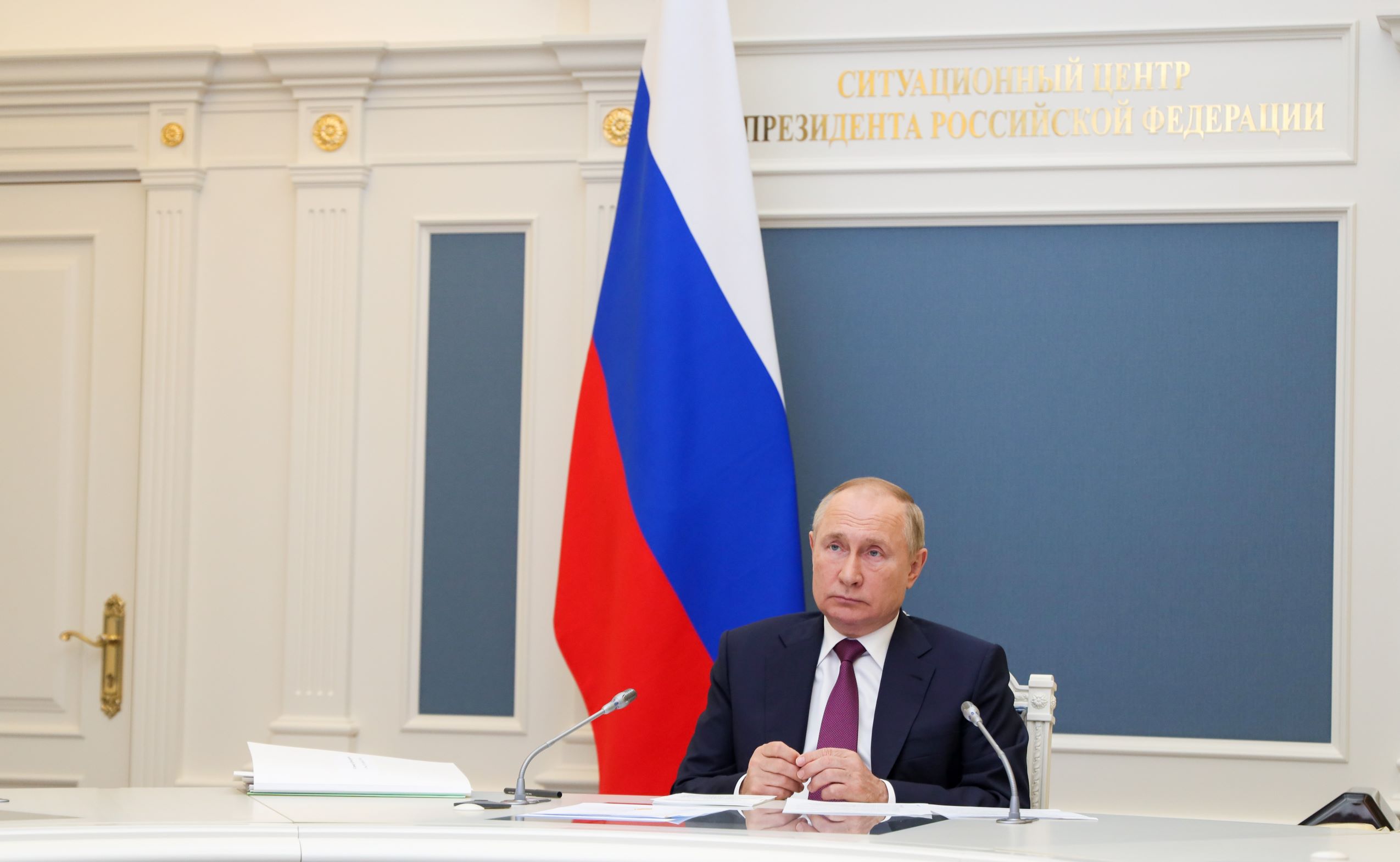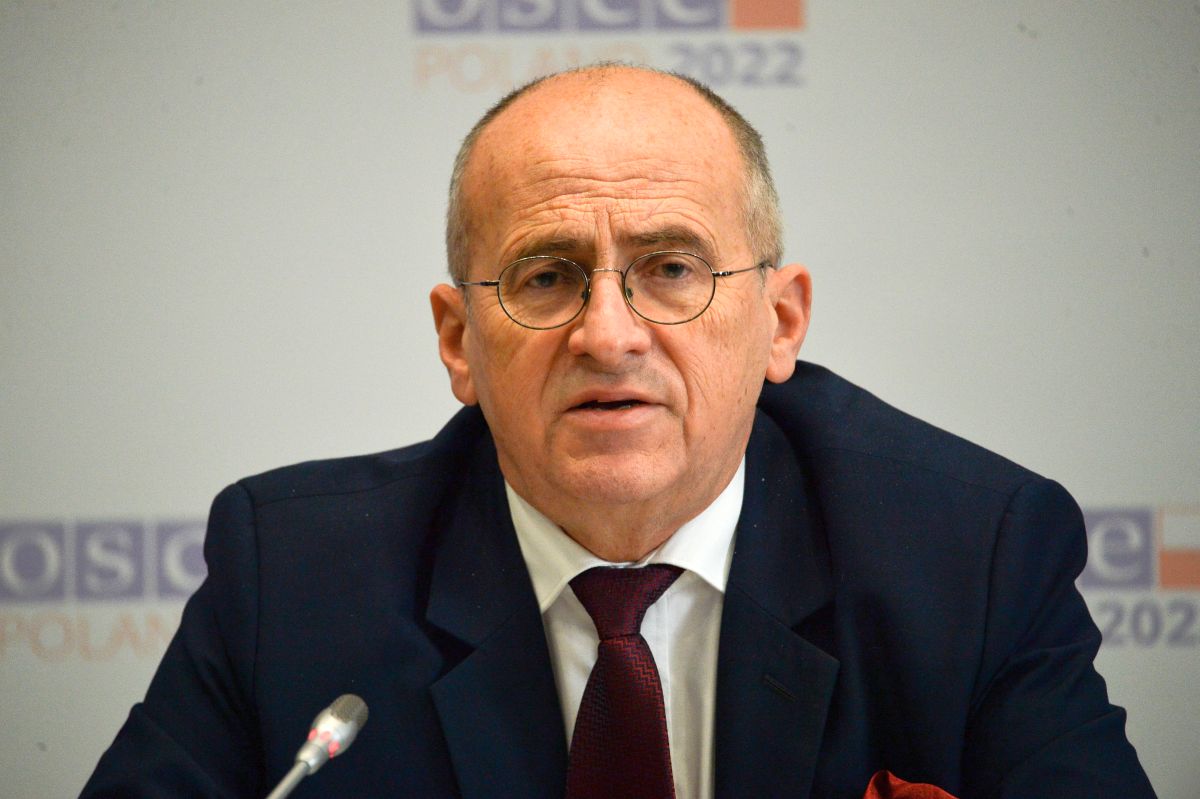Contested Interpretations of the Indivisibility of Security
In the letter sent to a number of OSCE participating states, published on 1 February, the Russian Foreign Minister Sergei Lavrov called on them to clarify their position with regards to the fulfilment of OSCE obligations, in particular their interpretation of the principle of the indivisibility of security. This initiative is an element of the Russian efforts to revise the European security system, as well as an attempt to shift the responsibility for the ongoing crisis to NATO.
 Fot. Zuma Press/ Ron Przysucha/State Department/ FORUM
Fot. Zuma Press/ Ron Przysucha/State Department/ FORUM
What does the principle of the indivisibility of security mean?
The principle was mentioned in the preamble to the Helsinki Final Act of the CSCE, and then repeated and expanded in the Paris Charter for a New Europe and subsequent OSCE documents. It primarily amounts to recognising the inseparable relationship between the security of each state in the OSCE area and their equal right to security. Together with comprehensive (multidimensional) and cooperative security, it is one of the fundamental principles of the European security system. OSCE documents include more specific obligations related to this principle, including not strengthening one’s security at the expense of the security of other states and respect for the right of each state to determine its security interests and choose its own security arrangements. No state has the right to regard any part of the OSCE region as its sphere of influence.
What is Russia’s position?
Since the 1990s, Russia has consistently referred to the principle of indivisibility of security as justification for its criticism of NATO enlargement, the Alliance’s development of relations with partners, and the military activity of NATO and its member states close to its borders. The 2009 Russian proposal for a treaty on European security (the Medvedev Initiative) and the draft agreements presented to the U.S. and NATO in December 2021 all emphasise this principle. According to the Russian interpretation, NATO’s actions infringe on its security interests and strengthen the position of its members and partners at the expense of Russia, and thus violate the principle of the indivisibility of security. Russia presents its position as a postulate to return to what it sees as the original interpretation of the OSCE principles and commitments.
Are the Russian arguments justified?
Russia has adopted a highly selective approach to the history, rights, and obligations of states stemming from international law and OSCE documents. The freedom to shape the security policy of states (within the limits of law) results from the essence of sovereignty. The existence of NATO and its enlargement cannot be therefore regarded in itself as contrary to the principle of indivisibility of security. Russia also glossed over the fact that in 1997 the Alliance voluntarily limited the deployments of conventional and nuclear forces on the territory of its new member states, taking into account Russian perceptions of security. In addition, the principles of European security are grounded on the assumption that states will respect international law in their mutual relations. Russia’s unlawful actions, including acts of aggression, forced adjustments in the security policies of NATO and Russia’s neighbours and were not done “at the expense” of Russia’s legitimate security interests.
Is it possible to agree a common interpretation of the OSCE principles?
The publication of Minister Lavrov’s letter demanding a “prompt reply” is not intended to initiate a dialogue on the interpretation of the OSCE principles, but rather to gain arguments to support the thesis on the responsibility of NATO members and partners for the crisis. An additional aim is to cause divisions among NATO and EU countries. It is almost certain that the responses of other countries will be deemed unsatisfactory by Russia, which may be then used to justify further escalation. A potentially more helpful alternative could be to move the discussion to the OSCE forum. The divergence on the issue of NATO enlargement will probably not be bridged, but it could be worthwhile, for example, to analyse the available instruments by which states can reduce their neighbours' concerns about modernizing their military capabilities, their military postures, or membership in alliances.




